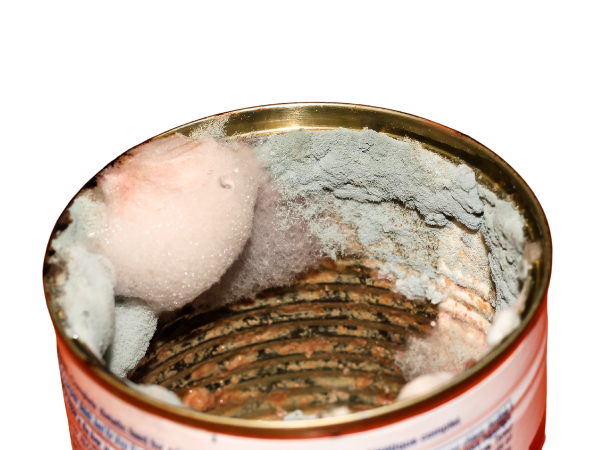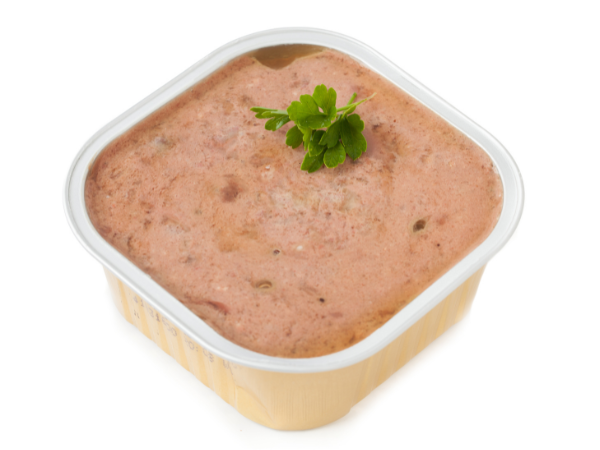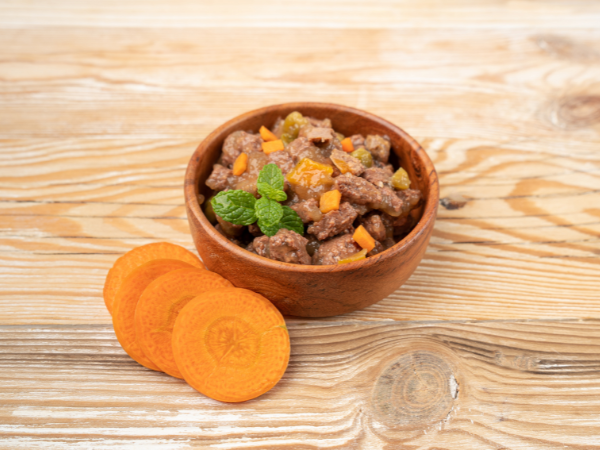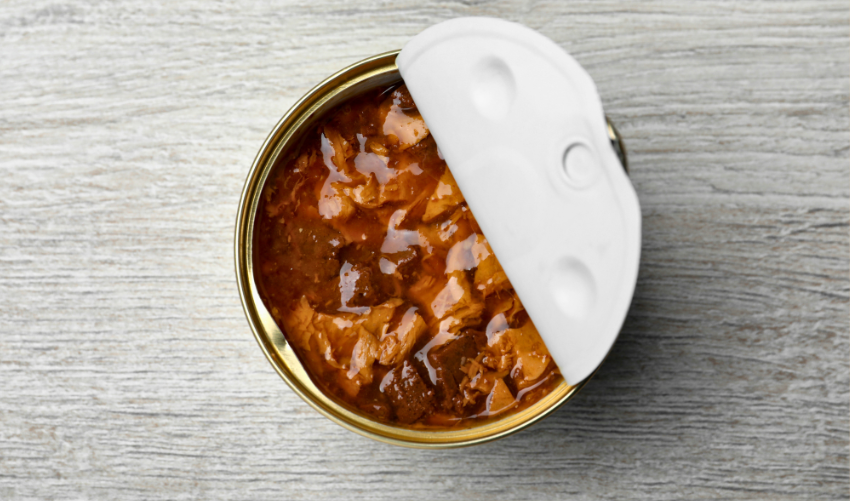Wet dog food can spoil quickly if not stored properly. Bacteria can grow, leading to potential health risks for your pet. This guide will help you learn the signs of spoilage and the best practices for storing wet dog food.
How Long Can Wet Dog Food Be Left Out?
Wet dog food is convenient and nutritious, but it can spoil quickly. Many pet owners wonder, how long can wet dog food be left out? Knowing the safe time limits can help keep your pet healthy.
Safe Time Limits At Room Temperature
It is crucial to know how long wet dog food can sit out without becoming unsafe. Wet dog food should be thrown out after 2–4 hours unrefrigerated to prevent bacterial growth. Here are some important points to consider:
- After opening, wet dog food is exposed to air.
- Room temperature is often warmer than you think.
- Always check the food for any strange odors or changes in texture.
Here is a quick reference table for safe time limits:
| Condition | Safe Time Limit |
|---|---|
| Room Temperature (up to 70°F) | 2 hours |
| Warm Room (above 70°F) | 1 hour |
| Hot Weather (above 90°F) | 30 minutes |
Remember, it is better to be safe than sorry. Always store opened wet dog food in the fridge if not used right away.
Variables That Affect How Fast Food Spoils
Several factors can affect how quickly wet dog food spoils. High temperatures, humidity, and exposure to air can shorten safe time. Here are some key variables:
- Temperature: Warmer temperatures speed up spoilage.
- Humidity: High humidity levels can promote bacterial growth.
- Type of Food: Different brands and types may spoil at different rates.
Exposure to air can also lead to spoilage. When wet dog food is opened, it becomes vulnerable to bacteria. Signs of spoilage include:
- Unusual smell
- Color changes
- Mold growth
Being aware of these factors can help you keep your pet’s food safe. Always check the food before serving it to your dog.
How To Tell If Wet Dog Food Has Gone Bad
Wet dog food can spoil quickly, especially at room temperature. It’s important to know how to tell if it has gone bad. Spoiled food can harm your dog.
Visual Signs Of Spoilage
Visual inspection is the first step in checking wet dog food. Look for any signs that indicate spoilage. Here are some common visual signs to watch for:
- Mold: This appears as fuzzy spots on the food. Mold can be green, white, or black. Any presence of mold means it’s time to discard the food.
- Discoloration: Fresh wet dog food has a consistent color. If you notice any unusual colors or patches, throw it away.
- Dried-out patches: If the food looks hard or crusty, it has likely spoiled. Dried-out patches mean it’s time to discard.
Always check the food before feeding it to your dog. These visual signs are crucial for keeping your pet healthy.

Bad Odors That Signal Danger
Smell is another important way to check wet dog food. Spoiled food often has a strong, unpleasant odor. Here are some smells to watch out for:
- Sour smell: A sour odor is a clear warning of spoilage. This indicates fermentation, which can harm your dog.
- Metallic smell: A metallic smell is also a sign that the food has gone bad. Do not feed this to your dog.
- Rancid smell: Rancid food has an off-putting odor. It often smells stale or rotten.
Pay attention to these smells. They can help prevent feeding your dog spoiled food. Keeping your pet safe is always the priority.
How To Store Wet Dog Food Safely
This guide will help you learn the best ways to store opened wet dog food, ensuring it remains fresh and safe for your pet.
Storing Opened Cans In The Refrigerator
An opened can should not be left out at room temperature for long. The best way to keep it fresh is to transfer leftovers to an airtight container and refrigerate them. Here are some tips:
- Use an airtight container to prevent moisture and odors.
- Label the container with the date you opened the can.
- Store in the refrigerator for no more than 2–3 days max.
Here is a simple table summarizing how long opened wet dog food lasts in the fridge:
| Type of Food | Storage Time in Refrigerator |
|---|---|
| Opened Canned Wet Dog Food | 2–3 days |
| Leftover Homemade Wet Dog Food | 3–5 days |
Keeping opened wet dog food in the refrigerator helps maintain its freshness. Always check for signs of spoilage before feeding your dog.
Freezing Wet Dog Food For Longer Shelf Life
If your dog does not finish a can of wet food within a few days, freezing is a great option. Portion and freeze wet food if it won’t be used within a few days. Here’s how to freeze wet dog food correctly:
- Divide the food into single-serving portions.
- Use freezer-safe containers or bags to prevent freezer burn.
- Label each container with the date of freezing.
Frozen wet dog food can last up to 3 months in the freezer. When you’re ready to use it, thaw it in the refrigerator overnight. Here’s a quick guide on thawing:
- Remove the portion from the freezer.
- Place it in the fridge to thaw slowly.
- Once thawed, use it within 2–3 days.
Freezing wet dog food not only extends its shelf life but also keeps your pet’s meals fresh and nutritious. Always check the food before serving.

Health Risks Of Feeding Spoiled Wet Dog Food
Feeding your pet spoiled food can lead to various illnesses. Understanding these risks helps keep your dog safe and healthy.
Common Illnesses Caused By Spoiled Food
Feeding spoiled wet dog food can lead to several health issues. Dogs may suffer from:
- Vomiting: Dogs often vomit as their body tries to eliminate bad food.
- Diarrhea: Loose stools are a common reaction to spoiled food.
- Food Poisoning: This can occur from eating contaminated food.
- Bacterial Infections: Harmful bacteria can cause severe health problems.
These issues can lead to dehydration and weakness. In severe cases, they may require veterinary care.
Bacteria Found In Spoiled Pet Food
Spoiled wet dog food can contain harmful bacteria. Common bacteria include:
- Salmonella: Can cause severe gastrointestinal illness.
- E. coli: May lead to serious digestive issues.
- Listeria: Can affect both pets and humans.
These harmful bacteria thrive in old wet food. They can multiply quickly, especially in warm environments. Signs of bacterial infection in dogs may include:
- Vomiting
- Diarrhea
- Fever
- Loss of appetite
It is crucial to store wet dog food properly. Always check expiration dates and avoid leaving food out at room temperature for long periods.
Best Practices To Keep Wet Dog Food Fresh
Knowing how long it lasts is key to keeping your pet safe. To ensure freshness, follow best practices for storing and serving wet dog food. Simple steps can help maintain quality and avoid waste.
Use The Right Tools And Containers
Using the right tools and containers is essential for keeping wet dog food fresh. Choose containers that are airtight and BPA-free. These containers help keep out air and moisture, which can cause spoilage.
Here are some tips for storing wet dog food:
- Spoon food with a clean utensil.
- Store leftovers in airtight containers.
- Keep containers in a cool, dry place.
- Label containers with the date opened.
Consider using these types of containers:
| Container Type | Benefits |
|---|---|
| BPA-free Plastic | Lightweight and durable |
| Glass Jars | Non-toxic and easy to clean |
| Metal Containers | Long-lasting and odor-resistant |
Always check for signs of spoilage before feeding. Discard food that smells bad or has changed color. By using the right tools, you can keep your dog’s meals fresh and safe.

Create A Feeding Routine To Minimize Waste
Establishing a feeding routine helps minimize waste and keeps your dog healthy. Serving food in smaller amounts can prevent leftovers. This way, your pet eats what they need without leaving excess food.
Follow these steps for an effective feeding routine:
- Determine your dog’s daily food requirement.
- Divide the total into smaller portions for each meal.
- Serve food in smaller amounts.
- Refrigerate leftovers immediately after meals.
By sticking to a schedule, you can monitor your pet’s eating habits. Adjust portions as needed based on their activity level and weight.


